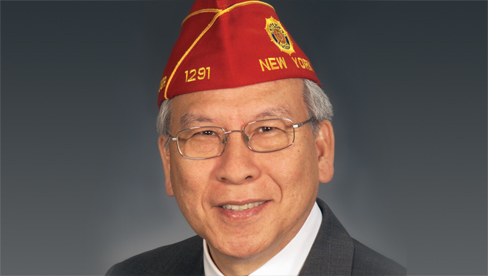
The American Legion’s principles, however, have endured through the decades, sometimes political but never partisan.
“From the outset, The American Legion kept out of politics. As a result, it rapidly acquired great political power.”
Richard Seelye Jones, “A History of The American Legion,” 1946
Politicians and their platforms have come and gone. Ronald Reagan and Strom Thurmond were Democrats before they were Republicans. Hillary Clinton started out as a Republican, as did Defense Secretary Leon Panetta, who once worked in the Nixon administration. The American Legion’s principles, however, have endured through the decades, sometimes political but never partisan.
By the first American Legion National Convention, the organization’s founders fully understood the political potential of an association of war veterans whose membership had soared to 684,000 in a matter of eight months. More than 5,000 posts had sprung up coast to coast, stitching the Legion’s presence into the fabric of our nation. By the end of 1919, the Legion was poised to influence politics at every level.
The temptation to march the Legion’s growing membership onto the battlefield of partisan politics was difficult to resist. At the first national convention, and in the years that followed, Article II, Section 2 of the Legion’s constitution was the subject of heated debate. Today, it reads:
“The American Legion shall be absolutely nonpolitical and shall not be used for the dissemination of partisan principles nor for the promotion of the candidacy of any person seeking public office or preferment.”
This means that The American Legion does not endorse candidates. Article II, Section 2 means checking your Legion cap at the door of any political rallies, fundraisers or conventions.
In the early years, some saw this rule as a missed opportunity to get friends of the organization elected and keep enemies out. Thankfully, cooler heads prevailed, and the Legion’s party neutrality strengthened the organization’s integrity in Washington, as it still does.
As the 2012 election year unfolds, we must remember how important that one sentence of our constitution is to the overall effectiveness of the Legion. Article II, Section 2 was the essential first step in a journey that helped the Legion create VA, pass the GI Bill, and ensure compassionate care and benefits for veterans and their families.
Combine our nonpartisan mandate with an organizational structure that empowers individuals to advance ideas and set in motion national resolutions, and you get what historian Richard Seelye Jones called “the machinery and the membership to convert principles into policies, to solve problems and to activate decisions. It was all arranged in the simple terms of an American democracy.”
Not a bad arrangement, if you ask me.
- Magazine

